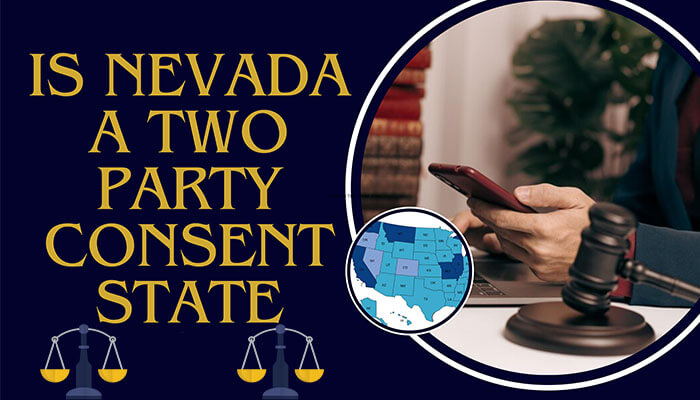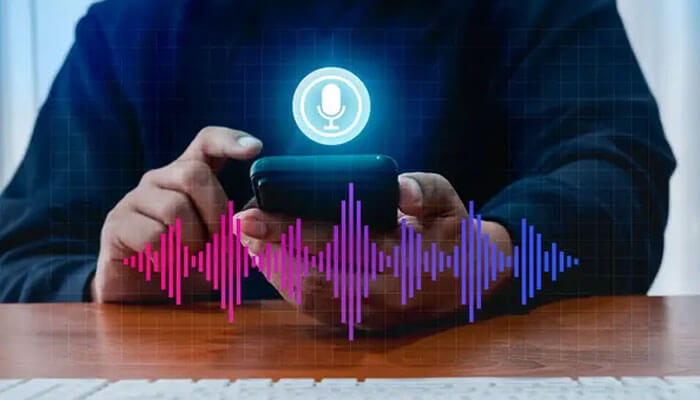Can you record a conversation in Nevada? Yes, but private discussions over the phone belong to various Nevada recording laws than private conversations in person. Nevada law prevents recording private, personal conversations without at least one of the parties involved giving permission. As you are one of the parties and have explicitly given your consent, you can therefore always record an in-person conversation. On the other hand, in Nevada, you can only wiretap (record) a private phone conversation if all parties involved consent to it. As a result, unless every person on the line consents, you cannot even record your own phone conversations. It is illegal to record conversations in Nevada. ‘Is Nevada a two party consent state?’ Read this article to know the answer for the query and know in detail about Niveda recording laws and all.
Is Nevada a Two Party Consent State/One Party Consent State?
Many people have confusion on, ‘Is Nevada a two party consent state/one party consent state?’ but Nevada is a ‘one party consent state’, when it comes to private, in person conversations. This is because of the fact that recording an in-person discussion only requires the permission of one of the parties.
But when it comes to private phone conversations, Nevada is a “two-party consent state” (sometimes known as a “all-party consent state”). This is because of the fact that recording a phone call requires the consent of each party. It does not matter if the caller uses a cell phone or a landline.
Is it Legal to Record the Conversation in Nevada?
Oral conversations that you are not a part of may not be recorded, obtained, shared, or used without one contributing party’s consent. It is unlawful to record or distribute wire communications without every person’s consent. In situations where the person or people communicating are in an environment where they should not be expected to maintain their privacy, this state does make an exception.
According to the Federal Communications Commission (FCC), if you are a third party and require consent from the people having the discussion, you can get consent to record by:
- Getting written or verbal consent before the recording is made.
- Before the conversation starts, a verbal notification is played.
- At regular intervals throughout the conversation, an audible beep tone is repeated.
Niveda Video Recording Laws:
It is illegal to intentionally and knowingly record a picture of someone else’s private areas or undergarments without the person’s consent or when that person has a reasonable expectation of privacy.
For example: When a person is in an area, where there is an appropriate expectation of privacy, it is illegal to record their private parts while they are using the restroom or changing room.
Additionally, it is against the law to distribute, publish, or display materials that were obtained in violation of the previous section. Make sure you have the right consent before taking a picture of someone for commercial use by having them sign a consent form for photos or videos.
Can I Record Non-Private Conversations Without Consent?
Yes. Conversations are not private if they occur in public or other locations, where there is no reasonable expectation of privacy. So, recording the general public conversations in a stadium, restaurant, or bus would probably not be illegal.
Exceptions for Nevada Recording Laws:
In Nevada, you can wiretap a private phone call without gaining everyone’s consent if you initially obtain a court warrant, if an emergency keeps you from getting one.
It should be noted that 911 calls are always recorded and that the operator does not need to obtain consent from the caller before. Note that laws governing phone interceptions may vary from state to state. Even if a recording is illegal in Nevada, it may be admissible as evidence if it was lawfully intercepted in another state.
Penalties for Unlawful Recording a Conversation:
The Illegal recording, whether done in person or over the wire, is a category D felony in Nevada. The punishment consists of up to $5,000 in fines and 1 to 4 years in Nevada State Prison.
In addition, the victim may file a lawsuit against you for invasion of privacy and be compensated for the punitive damages, actual damages or liquidated damages of $100 per day of the violation but not less than $1,000 in total (whichever is higher), and the victim’s reasonable legal fees and other costs.
Are Surveillance Cameras Legal in Nevada?
Although it is completely lawful to record video surveillance in Nevada, NRS 200.604 prohibits you from filming someone else’s or your own private areas. This means that you can install security cameras in areas where people don’t expect privacy. Additionally, you must have the approval of at least one party to record audio in Nevada because it is a one-party consent state. As a result, it is best practice to avoid recording audio while using surveillance cameras.
Workplace Surveillance Laws in Nevada:
According to Nevada’s workplace surveillance laws, surveillance cameras can only be used for legitimate commercial reasons. As a result, businesses are able to legally monitor their workers in various work situations.
For example, cameras placed in high-traffic areas or places where official business takes place are all appropriate for workplace video surveillance.
Nevada Workplace Policy:
Employers are prohibited to use video surveillance to monitor private areas or union activities. However, as long as no crimes are committed, federal law permits workplace surveillance even in the absence of employee consent.
Conclusion:
I hope this article gives you clarity on the query,’ Is Nevada a two party consent state?’ Nevada recording laws, Nevada one party consent and many other surveillance laws of Nevada. According to Nevada law, it is both a One-Party Consent State and an All-Party Consent State based on the applicable laws, at least one or all the parties in the recorded conversation must have given their prior consent.
In Nevada, recording oral communications in private without at least one party’s consent is illegal. Failure to comply with Nevada’s video surveillance requirements may result in fines, criminal charges, and civil penalties.





